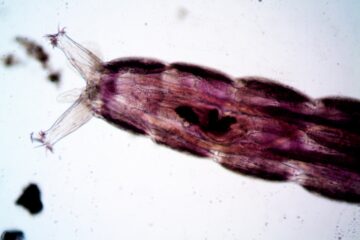![]()
Introduction
The state of the country’s forensic science services, as well as the deficiencies and obstructions that have hampered their growth, were periodically assessed by several committees. It was suggested that the overall competency and operation of the Forensic Science Laboratories be improved in order to strengthen the country’s criminal justice delivery system. It was also suggested that, in order to assure continuous improvement of Forensic Science operations at the national level, all Central Forensic Science Institutions be integrated under one roof under the Ministry of Home Affairs.
After carefully reviewing all of the proposals, the government decided to establish a separate Directorate of Forensic Science in New Delhi, reporting directly to the Ministry of Home Affairs, Government of India. The Directorate of Forensic Science took over the Central Forensic Science Laboratories in Kolkata, Chandigarh, and Hyderabad, as well as the Government Examiner of Questioned Documents in Kolkata, Shimla, and Hyderabad. The Directorate is led by a Forensic Scientist who will be known as the Director-cum-Forensic Scientist.
Directorate of Forensic Science, New Delhi
Based on the recommendations of the National Human Rights Commission and the Padmanabhaiah Committee on Police Reforms, the Ministry of Home Affairs, Government of India, established the Directorate of Forensic Science Services (DFSS) in 2002. On December 31, 2002, MHA issued a Gazette notification to that effect with Order number. 25011/41/2001-GPA.II/PM-II. It is led by the Director/Chief Forensic Scientist. It is in charge of six Central Forensic Science Laboratories, which are located in Chandigarh, Kolkata, Hyderabad, Pune, Guwahati, and Bhopal. The Directorate of Forensic Science Services’ mission statement is to provide ‘high quality and reputable forensic services’ to the justice delivery system.
Duties of the Directorate: The duties of the Directorate include to provide scientific assistance to the judicial delivery system, to spread forensic information and skills to the judiciary and other investigators through their training schools, as well as to provide advice and consultation services to them, identify forensic science and associated services challenges in the country and start, stimulate, direct, promote, and control all forensic science initiatives at the Central Government level, create effective links with institutions, ministries, organisations, police, prosecutors, universities, and other enforcement agencies and regulatory authorities in India and overseas to promote scientific assistance in the country’s criminal justice delivery system, provide technical service and guidance to the Ministry of Home Affairs in order to modernise forensic processes in the Criminal Justice Delivery System, coordinate the timely implementation of a national forensic science quality assurance and accreditation programme, as well as serve as anodal agency for the country’s competency testing for forensic science services, encourage private forensic practitioners to get accredited, and evolve ethics in forensic scientific practise, evaluate and analyse forensic science techniques, manuals, current practises, legal framework, and other connected matters as referred to by the government from time to time, advise and support state FSLs, universities, and other academic institutions both financially and technically in assessing, evaluating, and developing emerging and innovative areas of forensic science practise to aid law enforcement and the courts, by building forensic science information highways, forensic science institutions may access scientific databases and other information from across the country and the world, develop a national human resource development programme in forensic science and monitor its execution, coordinate specialised advanced training in the newest scientific methodologies for forensic scientists (both central and state) in India and abroad.
Central Forensic Science Laboratories
The Central Forensic Science Laboratory (CFSL) was established in 1968 under the Ministry of Home Affairs as a combined Central Forensic Science Laboratory under administrative control of the Central Bureau of Investigation (CBI) to cater to the Forensic Science needs of the CBI, Delhi Police, and Central Government Agencies, as well as Government of India undertakings, Judiciary, and other state Government agencies, in addition to assistance to other states and State Forensic Science Laboratories.
The laboratory’s major duty is to evaluate and provide expert opinion on crime exhibits/evidence materials obtained from the CBI, Delhi Police, Government Offices and Public Undertakings, court authorities, and national / state anticorruption and vigilance departments. There is also research and development work in all elements of forensic science, with a particular emphasis on the creation of innovative procedures to strengthen the evidence value of forensic reports. Exposure to forensic science is also provided to investigating officers and other forensic science course enrollees. Other frequent activities of CFSL include the publication of research articles, participation in police training courses, exhibits, conferences, and symposiums, and so on. In addition, the laboratory aids the state forensic science laboratories with training, development, and crime exhibit analysis in complex cases. Today, the Central Forensic Science Laboratory is one of the country’s most complete, with nine fully equipped divisions in New Delhi and a scientific assistance unit in the CBI branch in Chennai.
CFSL Chandigarh
The Central Forensic Science Laboratory in Chandigarh is the country’s leading provider of forensic science services. In the year 2005, the laboratory was recognised by the National Accreditation Board for Test and Calibration of Laboratories for operating a quality management system in accordance with ISO/IEC 17025:2005 and NABL 113: 2008.
The laboratory’s primary functions are threefold: first, to conduct R&D activities on various forensic science problems; second, to provide forensic crime case analytical support to investigating agencies and the judiciary; and third, to provide specialised forensic science training to forensic scientists, police officers, judicial officers, and other law enforcement officers. The laboratory’s technical activities are practically arranged into seven divisions: Ballistics, Biology, Chemistry, Explosives, Physics, Toxicology, and Questioned Documents.
CFSL, Kolkata
The Central Forensic Science Laboratory, Kolkata (CFSL-K) is a top Science and Technology Institution of National Importance with cutting-edge forensic science analytical facilities. The laboratory was founded in 1957 as an outstation subordinate office of the Intelligence Bureau, Union Ministry of Home, Government of India, with core four disciplines of forensic science viz. Ballistics, Biology, Chemistry, and Physics divisions. Later, in 1971, the laboratory was transferred under the administrative jurisdiction of a newly formed Department – BPR&D. As part of the execution of National Human Rights Commission recommendations, the MHA Govt. of India established a separate Directorate of Forensic Science in 2003, with three CFSLs and three GESQDs under its direct administrative supervision in Kolkata, Hyderabad, Shimla, and Chandigarh.
In 1971, CFSL(K) established a Neutron Activation Analysis (NAA) Unit in the grounds of Bhabha Atomic Research Centre (BARC), Mumbai, which today runs under administrative authority of CFSL, Hyderabad. The facilities for explosive and toxicological testing were strengthened in 1993 by the establishment of distinct divisions. During 1995, the Biology Division updated its analytical facilities by integrating serological investigations as standard biological analysis. The first National Forensic DNA Analysis facility was created in the biology division in 1997, for genotyping and sequencing of DNA associated Biological materials to crime exhibits of the laboratory.
The facility contains around 20 laboratories totalling 16,000 square feet (approx.). In the inspection of crime exhibits, a quality assurance and quality control system are in place. To guarantee high standards of quality, all reports are released following technical and administrative assessment. In forensic analysis, the lab is continuously looking for quality, speed, and trustworthiness. Biology, Serology, DNA Typing, Chemistry, Explosive, Toxicology, Ballistics, Computer Forensic, and Physics are the nine examination units in the laboratory. The principal duty is to give scientific direction to investigative agencies in gathering physical evidence at the site of crime and examining it in a variety of laboratories.
CFSL, Pune
The Ministry of Home Affairs of the Government of India has created a Central Forensic Science Laboratory in Pune with high-tech facilities to give forensic help in high-tech and other serious crimes. This facility will fill a void in this region of the country for emerging technology. It has access to developing forensic technology. This will also provide training and awareness programmes for police, medico-legal professionals, and the judiciary, as well as aid Investigating Officers in responding to high-tech crimes. Scientific services will be offered to produce the necessary momentum to support the criminal justice delivery system by having highly skilled human resources, state-of-the-art facilities, and projecting areas for adopting cutting-edge technology.
his Laboratory also conducts training and awareness programmes for police, medico-legal professionals, and the judiciary, as well as assisting Investigating Officers in the investigation of high-tech crimes. Scientific services will be offered to produce the necessary momentum to support the criminal justice delivery system by having highly skilled human resources, state-of-the-art facilities, and projecting areas for adopting cutting-edge technology.
Conclusion
The Directorate and CFSLs assist the country in becoming the top Justice Delivery System of International Standard by offering multidisciplinary high-quality services to the customer for Criminal Justice System with self-motivated highly qualified specialists and state-of-the-art facilities. In the next years, forensic science laboratories will play an important role in improving the conviction rate through accurate analysis by forensic professionals. Constant laboratory progress will ease the procedure conducted by experts, allowing them to handle a higher workload in the future and enhance the conviction rate of cases in the state.



0 Comments